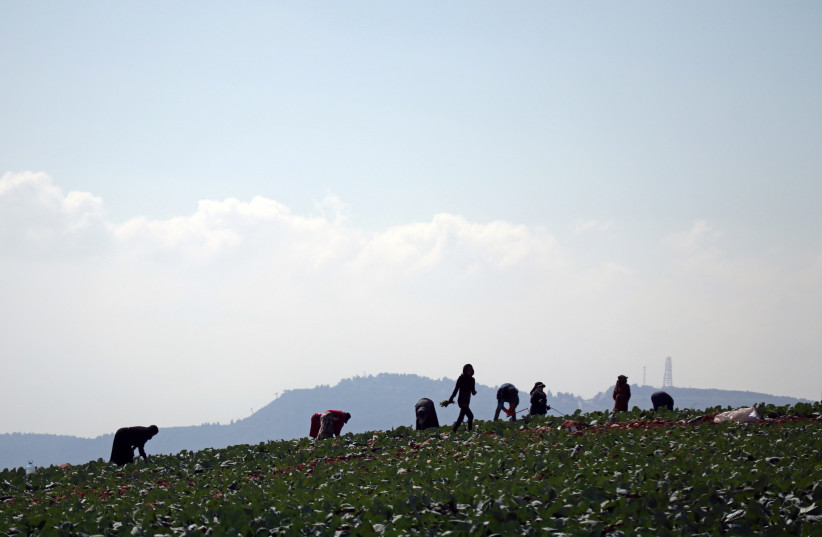Lebanese women find work, if they can get it, ‘senseless’ due to economic conditions
As the economic situation continues to deteriorate in Lebanon, with prices rising uncontrollably and jobs becoming scarcer by the day, it is Lebanese women who are the most affected by the high unemployment rate. The United Nations reported at the end of 2022 that women in Lebanon were twice as likely as men to be unemployed, to work in unfavorable conditions, and to receive lower pay.
Romy Nasr, a security and extremism analyst covering the Middle East and North Africa, told The Media Line that the situation in Lebanon has continued to worsen since the UN report came out, and the women’s unemployment situation was most likely worsening, too.
“I assume the statistics have deteriorated given the further deterioration of the country’s economic situation [since the UN report],” she said.
What caused Lebanon’s economy to suffer?
The Lebanese financial meltdown, which has been classed by the World Bank as one of the 10 worst economic crises globally since the 19th century, began several years ago and has only worsened with the COVID-19 pandemic and the August 2020 Beirut port explosion.
Nasr said it was important to note that the unemployment rate in Lebanon had increased for both men and women. According to the International Labor Organization Labour Force Survey, by January 2022 the unemployment rate stood at 29.6%, “indicating that less than half of the working-age population were either working for pay or profit or seeking employment,” said the report. Both men and women showed a sharp increase in unemployment, but “the female unemployment rate (32.7%) was somewhat higher than the male rate (28.4%),” the report added.
 Syrian refugee women and children work in a field in Al-Khiam village, near the Israeli border in south Lebanon October 13, 2017. (credit: REUTERS/RUSSELL BOYCE)
Syrian refugee women and children work in a field in Al-Khiam village, near the Israeli border in south Lebanon October 13, 2017. (credit: REUTERS/RUSSELL BOYCE)“While statistics vary between sources, and while the actual Lebanese population size remains unclear, the proportions show a sharp increase in unemployment,” Nasr said.
However, she added that there were particular reasons for the UN finding about women’s unemployment.
Nasr said the percentage of working women in Lebanon had always been higher than in neighboring countries, but conditions for women in the workforce were always worse than for men.
“Lebanese women have always had lower pay rates than men. While wages are considered very low at the moment due to the crisis, many women prefer to stay at home as it is not feasible to work anymore,” she said.
“Salaries at a mid-career level in Lebanon are currently around $150 per month. Fuel is around $12 per gallon. Working becomes kind of senseless if one works only to be able to afford gas consumption.”
Nasr added that many families had to sell their vehicles and that public transportation services in Lebanon are poor.
In addition to that, Nasr pointed out that jobs are difficult to find.
“With a serious and severe financial crisis, companies and retail businesses are shutting down, leaving a small margin for job hunting,” she said.
Mohamad Radwan Al Omar, president of the Lebanese Assembly for Inclusive Development and representative adviser from Lebanon on MediateGuru’s Global Advisory Board, told The Media Line that while women were severely underrepresented in the Lebanese political arena, it was his experience that women had been well represented in the workforce.
But he said the financial crisis had hit women harder because high-level posts and managerial jobs that women had occupied had declined, leaving many women outside the workforce.
Nasr said the disproportionate employment rate was having numerous ramifications, including reducing female financial autonomy, leading to dependency.
“Coupled with a high level of stress on the male side, [these situations] are increasing domestic violence cases and leading to a high number of divorces,” she said, adding that this, in turn, was leading to risk at a societal level, especially regarding children’s emotional welfare. News reports have stated that the number of domestic violence cases reported in Lebanon doubled to almost 1,500 in 2021. A survey by ABAAD, a local NGO, said that 96% of cases of violence against women cases went unreported.
Nasr also said the high unemployment rate was leading to increased prostitution, with women sometimes forced to resort to this if they were the only breadwinner in the family. A BMC Women’s Health study found in 2020 that among the main factors contributing to the rise of sex work in Lebanon was the rise in the unemployment rate, as well as political and social instability.
Al Omar said the government would not be able to address the situation before a legitimate president was elected and a new legitimate government could apply and work on new policies. However, the country has been mired in political instability, with the parliament failing to agree on any new presidential candidate since former President Michel Aoun left his post in October 2022.
He also said that while there were several NGOs that normally might work on the women’s unemployment issue, only a few were active, and none had been able to create any real change in the situation.





Comments are closed.